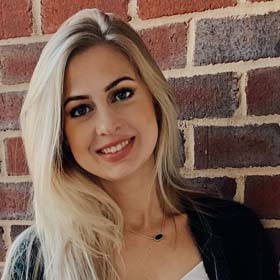
Luckily, it’s never too late to fix your sleep quality. Start with finding a sleep specialist who understands your needs. Sleep specialists can diagnose sleep disorders and recommend the best course of action to get you on your way to your best night of sleep.
Below we’ll show you how to choose a sleep doctor and what to ask them to find relief. Let’s dive in!
Do You Need a Sleep Specialist?
Adequate sleep is crucial for your overall health and well-being. This lifestyle factor influences your mood and behavior as well as your quality of life. It also regulates your immune system, appetite, and cognitive function.
When you sleep, your brain processes the information you received throughout the day. At the same time, your body secretes hormones that regulate appetite, tissue repair, and energy metabolism. A good night’s sleep also facilitates the removal of waste products from your brain cells.
Yet, most people fail to get enough rest. Insomnia, restless leg syndrome, stress, and joint pain can all affect your ability to fall and stay asleep. In the long run, sleep deprivation may lead to depression, mental disorders, and cardiometabolic diseases.
If you have a hard time falling asleep or performing your daily activities because you’re too tired, it’s time to see your healthcare provider who will assess your symptoms and recommend a sleep specialist if necessary.
Having a bad night’s sleep once in a while is perfectly normal. However, if this problem persists, it’s essential to seek medical help. Watch out for the following warning signs:
- You feel tired and sluggish during the day despite getting a good night’s sleep.
- You tend to wake up throughout the night and find it difficult to fall back to sleep.
- You have a hard time falling asleep.
- You wake up gasping for breath.
- You are experiencing snoring.
Any of these symptoms can indicate a sleep disorder. Primary care providers may help in some cases, but they are not specialized in sleep apnea, chronic insomnia, and other sleep disorders. That’s why it’s important to ask your healthcare provider to recommend a certified sleep doctor.
What Is a Sleep Specialist?
Sleep specialists are physicians with additional training in sleep medicine. They have the experience needed to treat sleep motion disorders, insomnia, parasomnias, snoring, sleep apnea, and other sleep problems.
These medical professionals are certified by the American Board of Sleep Medicine and have a primary area of expertise. There are sleep specialists who will treat you based on your specific needs.
If your child is experiencing sleep problems, a pediatrician would be the first stop.
Psychiatrists can help with narcolepsy, sleepwalking, and other conditions that cause daytime sleepiness. They also assist if you are experiencing sleep problems due to anxiety, stress, or depression.
Dentists can help with bruxism and sleep apnea. They also teach you how to use oral appliances prescribed for sleep disorders.
An otolaryngologist can address snoring and other problems caused by blockages in your throat. Depending on your condition, they may recommend CPAP therapy or surgery.
If your sleep problems are related to lifestyle factors, you may want to see a behavioral sleep medicine specialist.
A pulmonologist, on the other hand, can address sleep issues due to breathing disorders, such as asthma.
How to Find a Certified Sleep Specialist
As discussed earlier, one way to find a sleep doctor is to ask your healthcare provider. Another option is to conduct research on your own.
Sleep specialists work either in hospitals and private clinics or have their own practice. You can also look for sleep centers in your area. Use a trusted resource such as the American Academy of Sleep Medicine to find accredited sleep facilities near you.
What to Ask a Sleep Specialist
During your first visit to a sleep specialist, they will ask about your symptoms and overall health. If necessary, they may recommend you to enroll in a sleep study or additional tests to diagnose your condition.
A sleep study is a non-invasive test that helps monitor your sleep patterns. The doctor will assess your results and recommend an appropriate treatment.
Before taking this step, make sure you know what to ask a sleep specialist. Consider the following questions:
- Do they suspect you have a sleep disorder?
- Should you undergo a sleep study?
- Is the testing facility accredited by the American Academy of Sleep Medicine?
- Who will assess and interpret the results of your sleep test?
- Can you see the facility before taking the test?
- Could your sleep problems be due to any medications you’re taking?
- Is your snoring normal?
- What do they think about your sleeping habits?
- Are there any lifestyle changes you can make to improve your sleep?
After you receive a diagnosis, ask the doctor about your treatment options and what to expect in the long run. Are there any complications you should be aware of? Is there anything you can do to prevent your condition from getting worse?
Better Sleep, Better Health
By finding a sleep specialist, you are taking the first step in getting a better night’s sleep.
Adequate sleep health treatment will not only help you get more shuteye but will also improve your overall health. You’ll wake up feeling refreshed, have more energy, and focus better on the tasks at hand.




